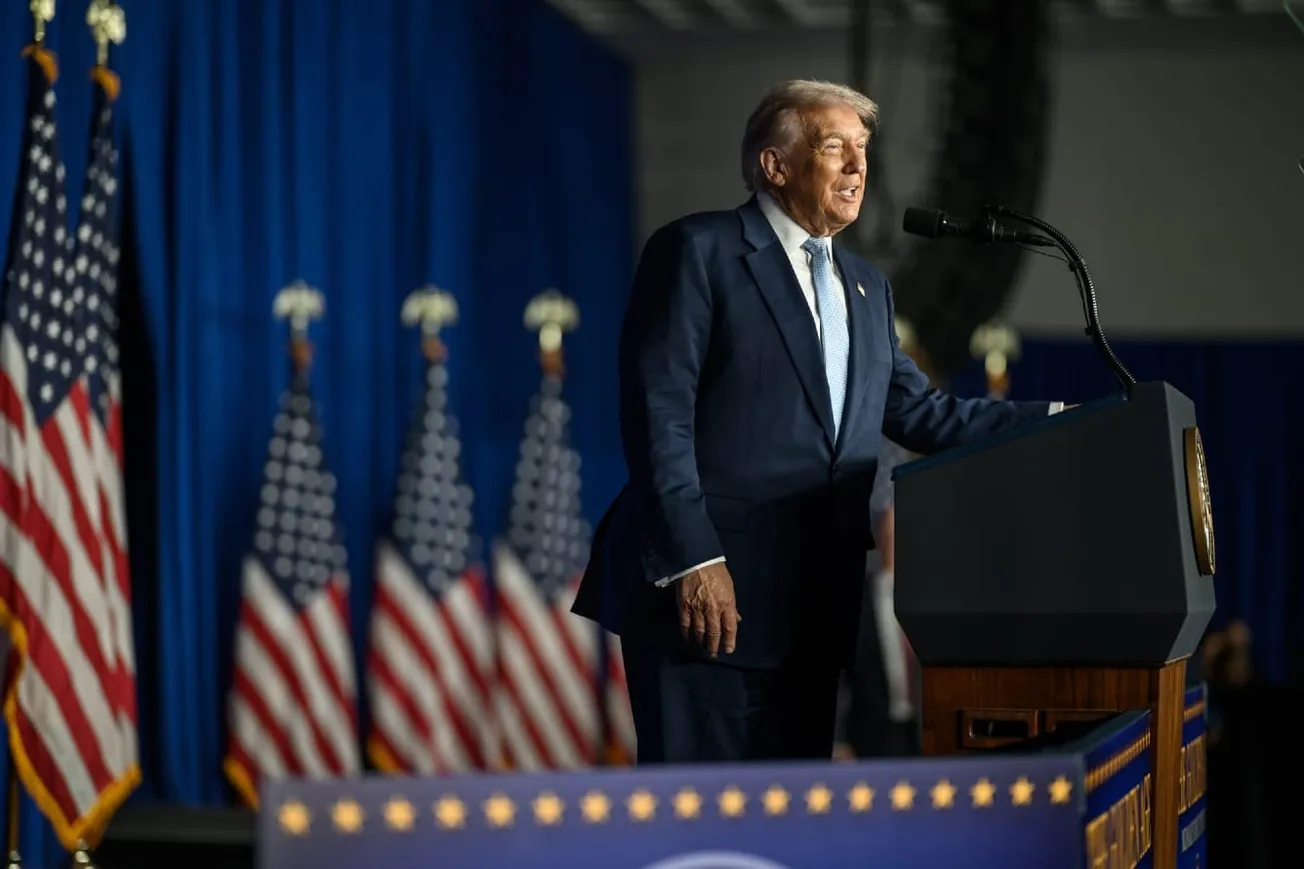- Biden reclassifies marijuana to a less restrictive category
- Public opinion is divided along party lines
- Reclassification's societal impact remains uncertain
- RELATED: America's Fears About Legal Pot And Stoned Drivers Are Laid Bare In This Shocking Daily Mail Survey
As Election Day approaches, President Biden is going all out to appeal to voters, even shifting his position on a hotly debated topic – marijuana legalization.
Early last month, he announced that the White House plans to reclassify cannabis – a process that began back in October 2022. Now, marijuana will be moved to a moderately restrictive category (Schedule III) from the most restrictive category (Schedule I) on the federal list.
It is interesting that the biggest change in federal drug policy in more than half a century is being spearheaded by Joe Biden. He authored the Anti-Drug Abuse Act of 1986, which imposed higher federal penalties for the possession and distribution of Schedule I substances. Even as recently as in 2020, during the last presidential primary, he was the only Democratic candidate who did not fully endorse the full federal decriminalization of marijuana.
Biden administration’s latest move will not make marijuana federally legal. But, the change in classification will make it easier to conduct research on the drug and reduce the tax burden on state-legal cannabis companies.
Marijuana has been gaining in popularity in recent years. While some attribute it to the increased use of recreational drugs, others point to its potential medicinal properties.
In a recent Newsmax/TIPP Poll, nearly half of the respondents (47%) reported either personal use of marijuana or usage by someone in their household within the last six months. Among those who did use it, 15% cited medicinal reasons, while an almost equivalent number, 13%, indicated recreational use. Interestingly, nearly one-fifth of respondents, 19%, reported they had used marijuana for therapeutic as well as recreational purposes.
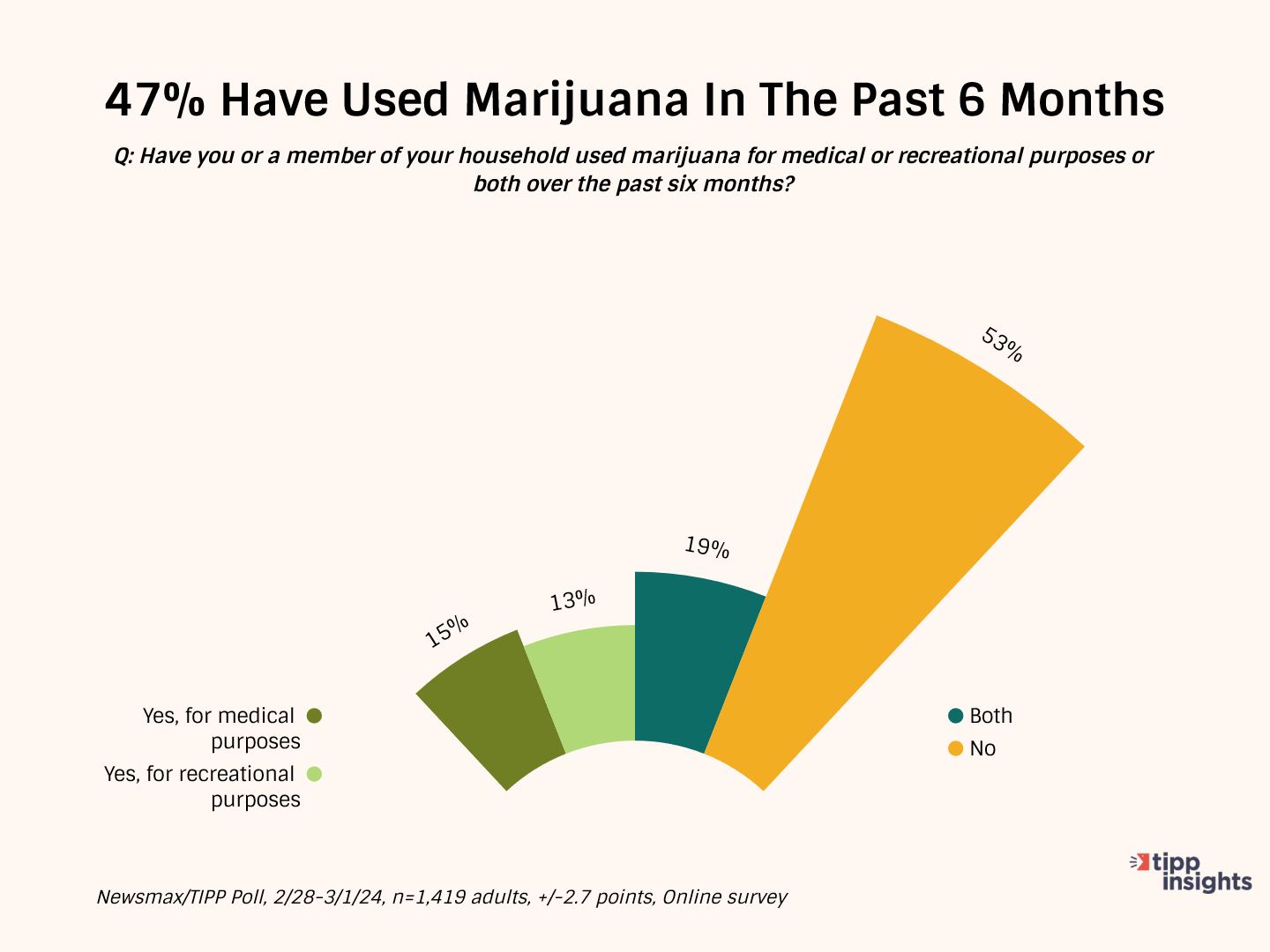
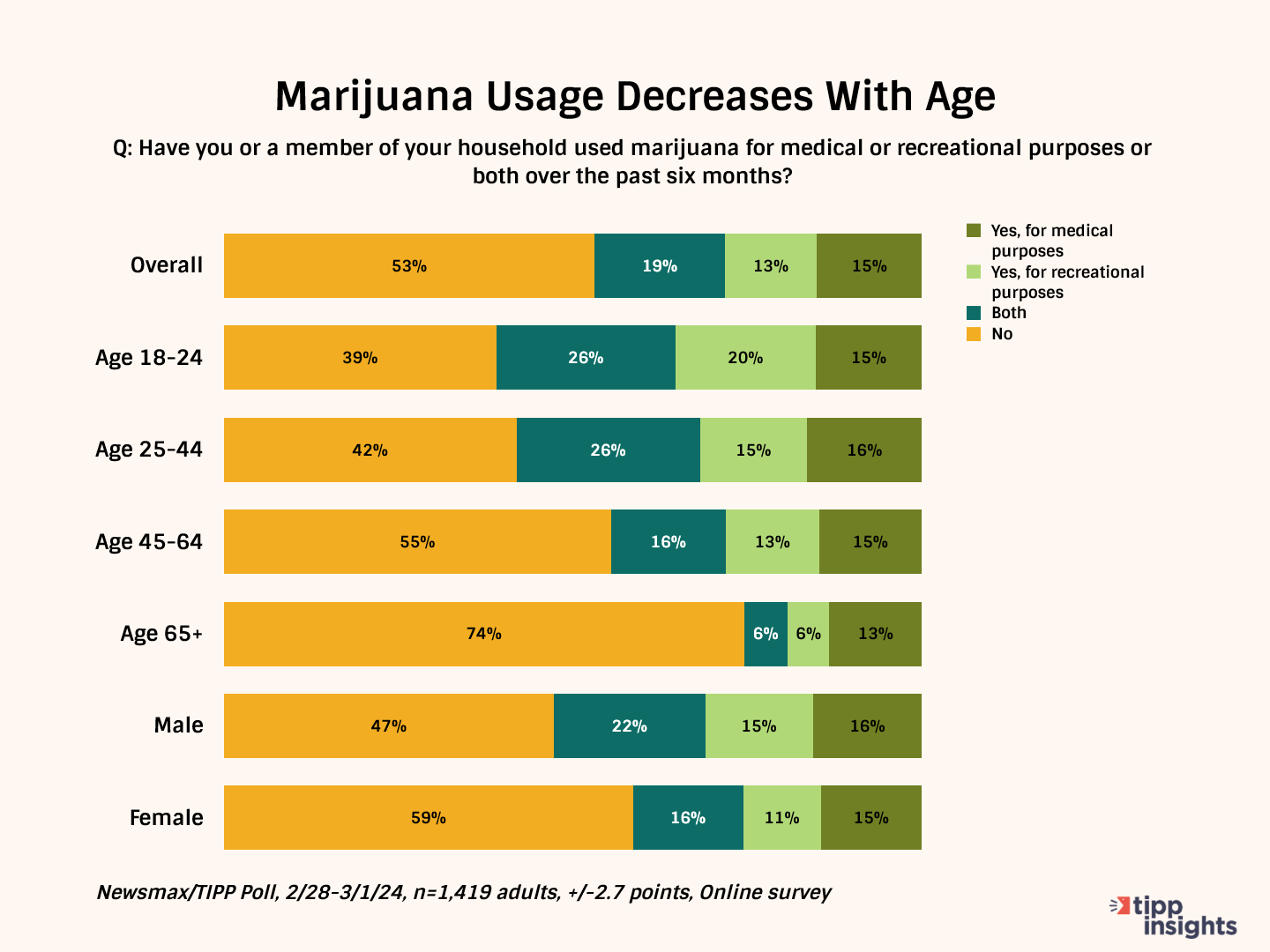
Legalizing Marijuana
For years, there has been intense debate around legalizing the use of marijuana. The complex issue encompasses a range of social, economic, and public health considerations. As with any drug, some pros and cons must be taken into consideration.
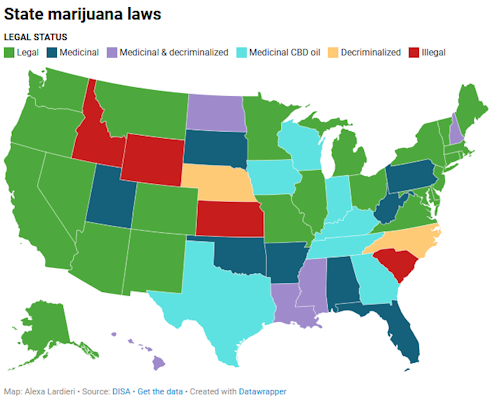
While some cite the beneficial medicinal properties of marijuana that help alleviate symptoms of chronic pain and anxiety disorders, others point to the potential adverse effects, including addiction and impaired cognitive function. Those who support legalization argue it can generate tax revenue and lead to better regulation of the production, distribution, and consumption of marijuana, thereby ensuring public safety and minimizing potential harms.
But, the impact on public health and safety cannot be fully assessed, and those costs may be far greater than any potential gains. As it is, some states in the US have made marijuana legal for medical and/or recreational use, though it remains illegal at the federal level. This dissonance between state and federal laws creates legal uncertainties and challenges for authorities, businesses, and users.
Along party lines, a significant majority (70%) of Democrats would like to see marijuana made legal. Less than half (44%) of Republicans support legalization, while Independents fall in the middle, with 58% in favor.
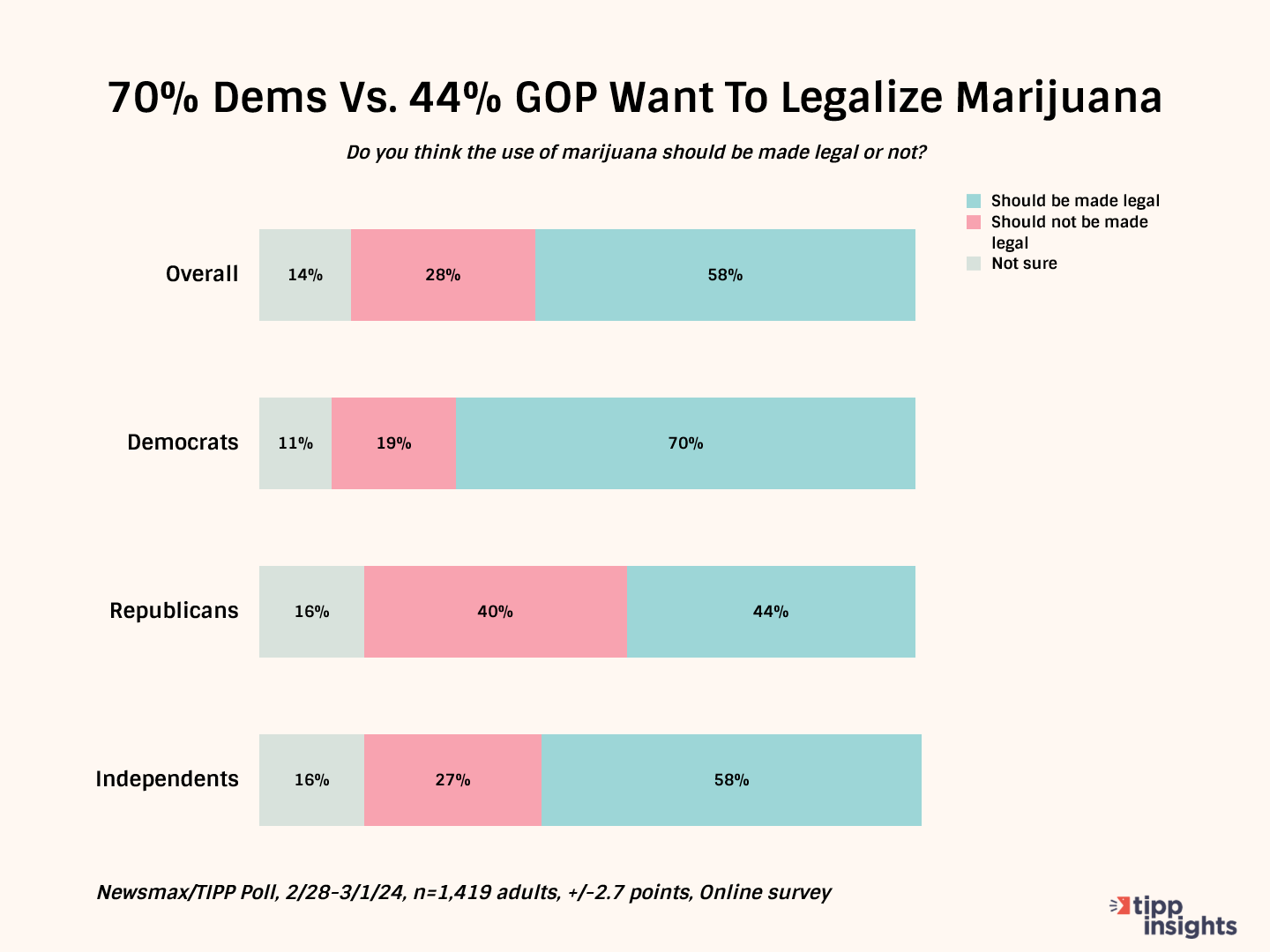
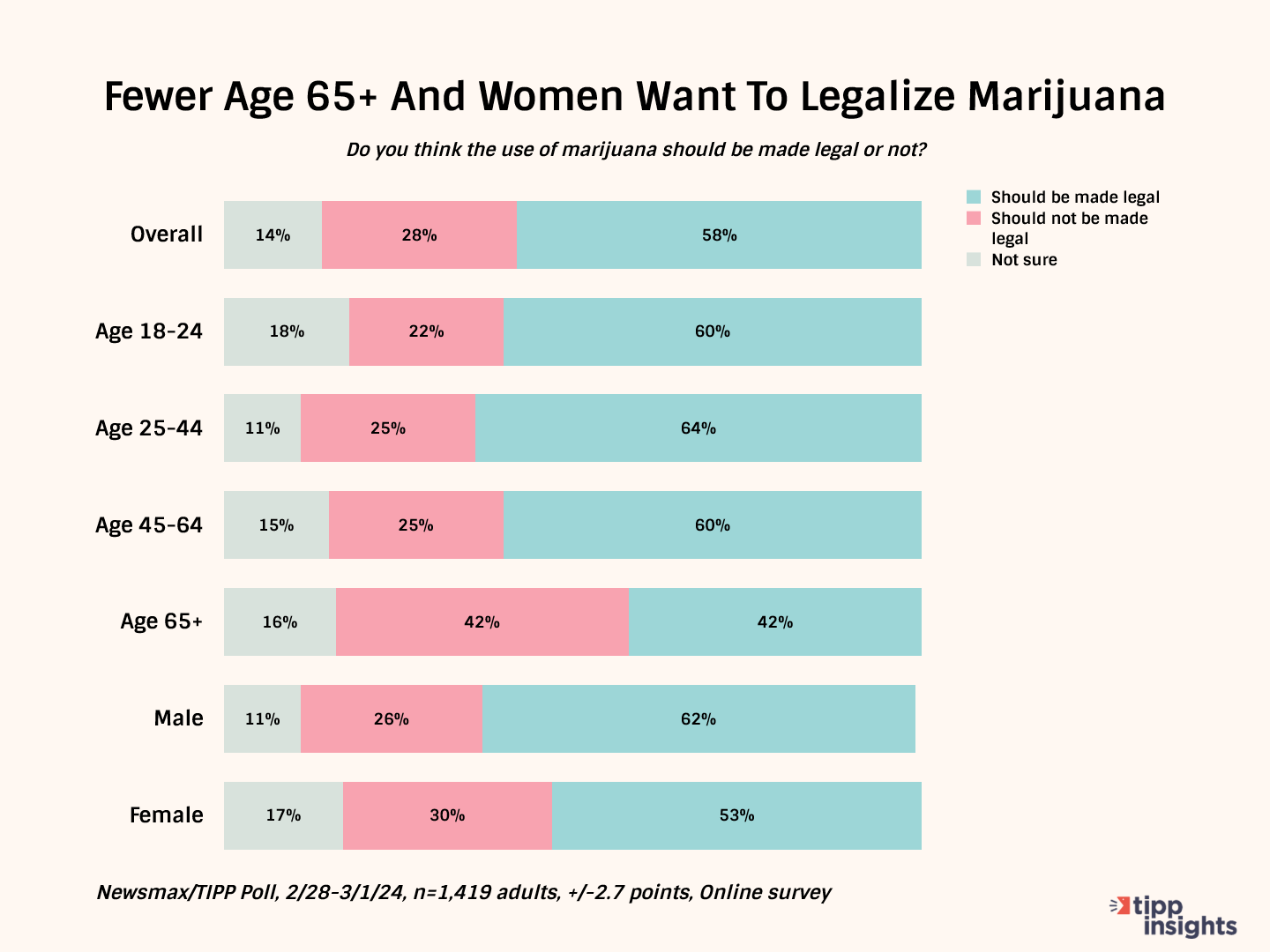
Will Legalization Benefit Society?
Overall, 54% feel that legalizing marijuana will benefit society, with 29% being very confident and 25% somewhat confident.
But, the supposed benefits of legalizing marijuana are divided along party lines. 69% of Democrats feel making it legal will have many advantages. But, only 38% of Republicans share the view, while 53% of Independents agree.
By ideology, while only 40% of conservatives see benefits in legalization, 54% of moderates and 72% of liberals are in favor.
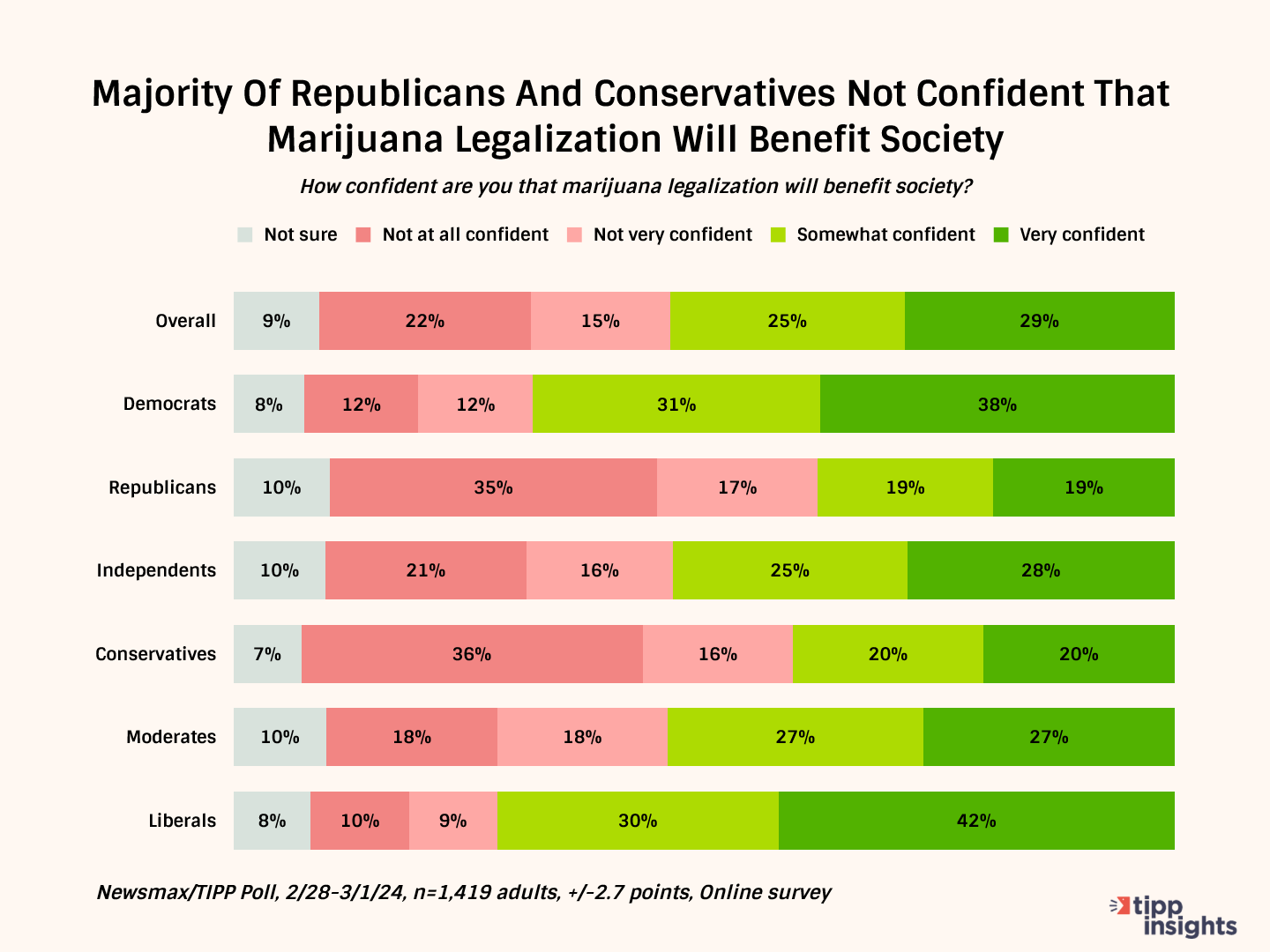
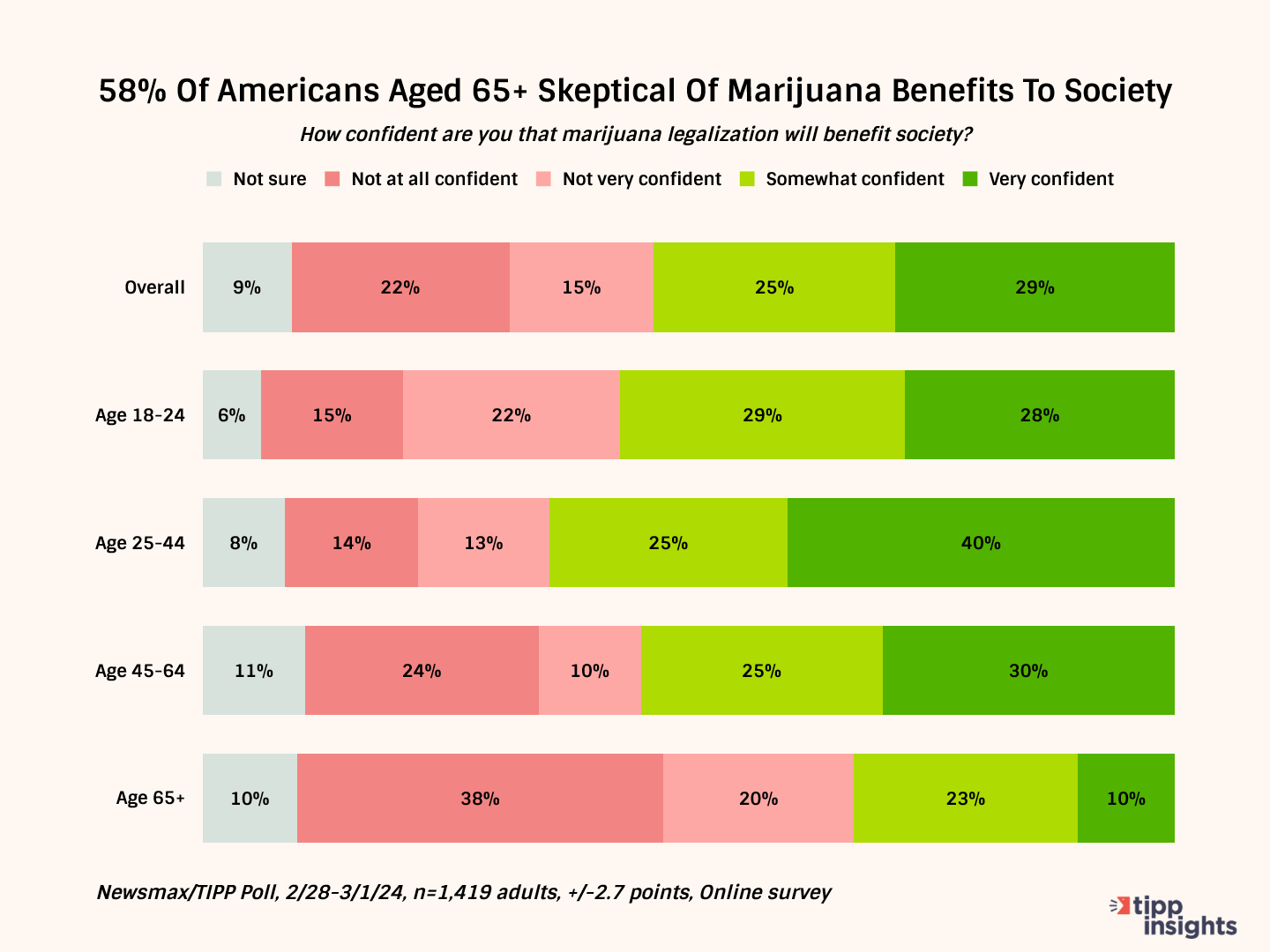
Automobile accidents have increased in legal recreational marijuana states. According to a recent DailyMail.com/TIPP survey, fully 52 percent of Americans said cannabis use was driving up the number of vehicle collisions.
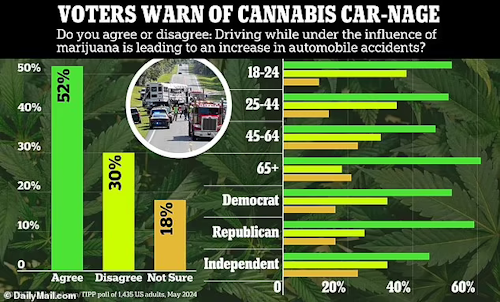
The hype and hope surrounding marijuana are unlikely to die down anytime soon. With American society grappling with a rampant drug epidemic, the reclassification of marijuana is likely to have a significant impact. Whether it will mitigate the use of deadly drugs like Fentanyl or exacerbate drug abuse remains to be seen.





